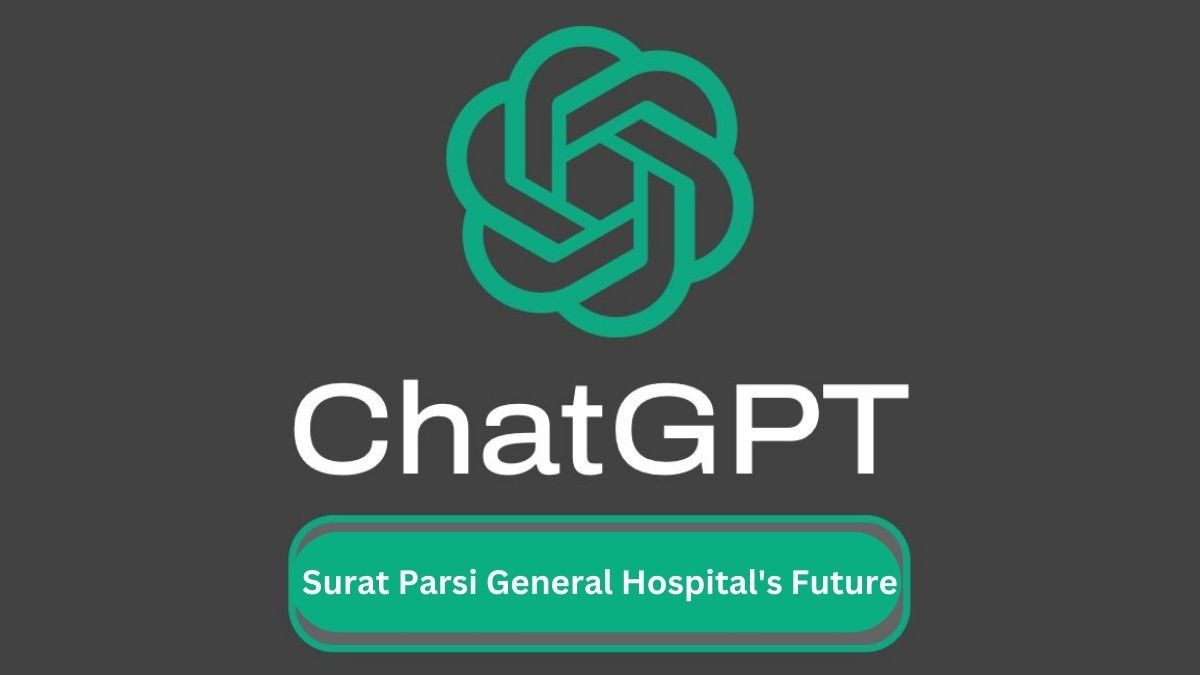Amid Concerns Over Surat Parsi General Hospital’s Future, Parsi Community Turns to ChatGPT for Answers
The Surat Parsi General Hospital, along with other institutions such as the Dharamshala and Orphanage, which were once thriving, have reportedly faced challenges in recent years. Despite holding valuable lands and properties worth significant amounts, and generating substantial income through their sale or long-term leasing, the SPP has struggled to sustain and revitalize these institutions effectively.

Advertisement
Surat : In a bid to seek answers to their queries regarding the future of Surat Parsi General Hospital, members of the Parsi community in the diamond city of Surat have turned to ChatGPT, an AI-assisted chatbot. Frustrated with the lack of responses from the Surat Parsi Panchayat (SPP) office-bearers, who oversee the management of the hospital, community members are exploring alternative avenues to address their concerns.
The Surat Parsi General Hospital, along with other institutions such as the Dharamshala and Orphanage, which were once thriving, have reportedly faced challenges in recent years. Despite holding valuable lands and properties worth significant amounts, and generating substantial income through their sale or long-term leasing, the SPP has struggled to sustain and revitalize these institutions effectively.
One progressive Parsi community member recently posed a question to the ChatGPT, asking how Surat Parsi General Hospital would function after a decade. The response from ChatGPT shed light on potential developments based on current trends and possibilities.
According to ChatGPT’s speculative response, several key possibilities emerged regarding the future functioning of Surat Parsi General Hospital:
Expansion of facilities: To meet the increasing demand for healthcare services, the hospital may have undergone expansion and renovation. This could involve increasing the number of beds, operating theaters, imaging facilities, and diagnostic centers.
Adoption of advanced technology: The hospital might have incorporated advanced medical technologies, including robotic surgery platforms, AI-based diagnostic tools, and remote patient monitoring systems. Such advancements can significantly improve the accuracy and efficiency of treatments and enhance patient outcomes.
Telemedicine services: With the rising popularity of telemedicine, Surat Parsi General Hospital may have implemented telehealth services. This would enable patients to consult with doctors remotely, receiving medical advice and prescriptions without physically visiting the hospital. Telemedicine can enhance convenience, save time, and reduce unnecessary visits.
Focus on preventive care: The hospital could have developed wellness programs and initiatives to promote preventive care. By educating the community about maintaining a healthy lifestyle and preventing diseases, the hospital can contribute to improved public health. Health check-ups, awareness campaigns, and community outreach activities may be part of these programs.
Collaboration and partnerships: The hospital might have forged collaborations and partnerships with other healthcare institutions, both locally and internationally. These alliances would facilitate the exchange of medical knowledge, specialized training programs, research collaborations, and the sharing of best practices, ultimately enhancing the quality of care provided.
Emphasis on patient-centered care: Surat Parsi General Hospital may have prioritized patient-centered care, ensuring personalized treatment plans, improved communication between patients and healthcare providers, and an enhanced patient experience. This approach aims to involve patients actively in their healthcare decisions and deliver holistic care tailored to individual needs.
While these predictions offer a glimpse into the potential future of Surat Parsi General Hospital, it is crucial to note that the realization of these developments depends on various external factors. The actual functioning of the hospital after 10 years may vary significantly based on prevailing circumstances and ground realities.
Community members are increasingly turning to AI-assisted technologies like ChatGPT to seek answers and insights when faced with a lack of satisfactory responses from traditional channels. These emerging technologies have the potential to bridge the information gap and provide alternative sources of guidance and information.
The concerns raised by the Parsi community regarding the functioning and future of Surat Parsi General Hospital highlight the importance of transparent communication, accountability, and effective management within community institutions. Addressing these concerns and working towards sustainable solutions will be crucial for the well-being and continued development of the Parsi community in Surat.
Advertisement

